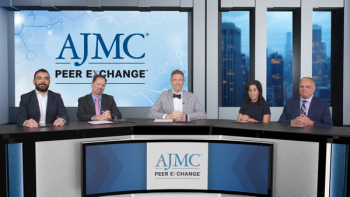
Panelists discuss how future RWE should expand to include survival, quality of life, and safety data to improve third-line mCRC care.

Panelists discuss how future RWE should expand to include survival, quality of life, and safety data to improve third-line mCRC care.
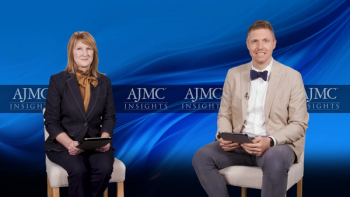
Panelists discuss how negative symptoms like lack of motivation, social withdrawal, and impaired expression significantly impact patients’ ability to maintain relationships and employment, representing a challenging aspect of care with limited effective treatment options.

Panelists discuss how physician assistants play an essential role in addressing the critical shortage of psychiatrists, particularly in rural areas, where 55% of US counties lack a single psychiatric provider and 143 million Americans live in psychiatric shortage areas.
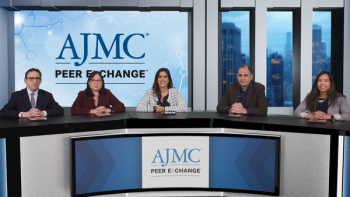
Panelists discuss how oral azacitidine plus venetoclax represents a transformative advance toward completely oral regimens that could dramatically improve quality of life and accessibility, though challenges remain regarding cost, insurance coverage, and the complexity of managing multiple oral agents.

Panelists discuss how emerging therapies like menin inhibitors show promise based on strong preclinical data and clinical responses, while CD47 inhibitors have faced setbacks in phase 3 trials, with the greatest potential for novel agents likely in frontline combination settings.
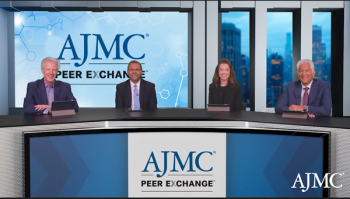
Panelists discuss how payers typically require step therapy with SGLT2 inhibitors before approving nonsteroidal MRAs due to cost considerations, while acknowledging the need for head-to-head trials to determine incremental benefits, though early clinical experience suggests good tolerability and the potential for combination therapy initiation rather than sequential treatment approaches.

Panelists discuss how nonsteroidal MRAs like finerenone differ mechanistically from steroidal MRAs by lacking steroid rings (reducing steroid-related adverse effects like gynecomastia), having different mineralocorticoid receptor binding patterns, shorter half-lives, and potentially lower hyperkalemia risk, with strong evidence supporting their use in heart failure with preserved ejection fraction and additive benefits when combined with SGLT2 inhibitors.
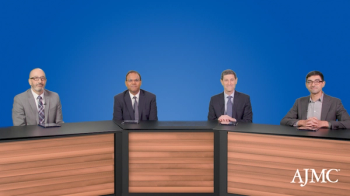
Panelists discuss how real-world programs like PROMPT-LIPID expose undertreatment patterns and guide care improvement.

Panelists discuss how pharmacy-related delays and limited escalation practices widen LDL-C management gaps.

Experts discuss the complexities of treatment sequencing in cancer therapy, emphasizing the importance of using the best therapies upfront for optimal outcomes.

Panelists discuss how proactive AE management optimizes safety and adherence with emerging EGFR-targeted regimens.

Panelists discuss how RWE informs treatment and safety decisions for special populations such as patients with ECOG PS 2 with metastatic colorectal cancer.

Panelists discuss how PROs, particularly tolerability and fatigue, guide shared decision-making for third-line therapy in mCRC.

Panelists discuss how venetoclax management requires standardized approaches to duration, bone marrow biopsy timing, growth factor use, and azole antifungal selection, with practices varying significantly between centers and the need for consistent protocols to optimize patient outcomes.
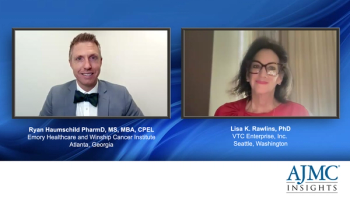
Panelists discuss how managed care organizations can leverage prescription digital therapeutics as cost-reduction tools to address quality metrics and offset financial impacts from health care policy changes while identifying education of providers about workflow impacts and value propositions as the biggest unmet need for wider adoption in mental health conditions.

Panelists discuss how insurance coverage for prescription digital therapeutics remains uneven due to uncertain reimbursement pathways, lack of awareness among health care leaders, challenges in demonstrating cost-effectiveness, provider workflow concerns, and technical barriers including coding issues and limited electronic health record integration.

Panelists discuss how IDH inhibitors, particularly ivosidenib combined with azacitidine, represent potentially the greatest advance in AML treatment due to significant overall survival improvements, though adoption challenges include waiting for mutation results and limited patient applicability.

Panelists discuss how mineralocorticoid receptor antagonists (MRAs) remain underutilized despite being foundational therapy for heart failure with reduced ejection fraction due to clinician fears of hyperkalemia and renal dysfunction, while new nonsteroidal MRAs like finerenone show promise across the ejection fraction spectrum with potentially improved adverse effect profiles, though questions remain about their incremental benefit over traditional steroidal MRAs given their substantially higher cost.

Panelists discuss how GLP-1 receptor agonists show promising benefits for patients with HFpEF, particularly those with obesity-related disease, through significant weight loss and improved functional capacity, while their role in HFrEF remains more cautious due to concerns about increased heart rate and potential arrhythmic risks, though observational data suggest additive benefits when combined with SGLT2 inhibitors.
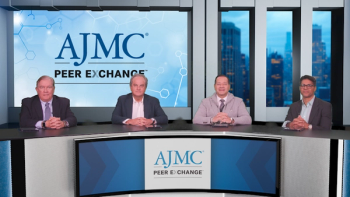
Panelists discuss how understanding and managing the full range of schizophrenia symptoms is key to improving long-term patient outcomes.

Panelists discuss how schizophrenia’s immense personal and financial burden calls for early, integrated, and sustained care strategies.

Panelists discuss how: clinical inertia, patient apathy, and the asymptomatic nature of high cholesterol all contribute to undertreatment and poor outcomes.

Panelists discuss how: LDL-C control remains a national crisis, with many patients not on therapy or failing to reach target levels despite the availability of effective treatments.

Panelists discuss how CNS-active EGFR TKIs are improving intracranial outcomes and influencing treatment selection in NSCLC.

Panelists discuss how new dual-targeting agents and TKIs are redefining treatment approaches in EGFR-positive NSCLC.

Panelists discuss how real-world outcomes inform patient conversations and support shared decision-making for third-line metastatic colorectal cancer therapies.

Panelists discuss how RWE helps guide sequencing choices when head-to-head trial data are lacking in third-line metastatic colorectal cancer.

Panelists discuss how the treatment landscape has evolved from limited options to include hypomethylating agents and venetoclax combinations, with emerging oral formulations promising greater accessibility while requiring careful consideration of patient selection and toxicity management.

Panelists discuss how prescription digital therapeutics differ from traditional pharmaceuticals by following FDA medical device approval pathways focused on clinical performance and safety rather than chemistry and manufacturing while offering potential economic value by extending behavioral health capacity to underserved populations, especially in rural areas with limited mental health professionals.

Panelists discuss how combination trials like VIALE-A and VIALE-C have demonstrated venetoclax’s survival benefits when added to hypomethylating agents, opening doors for numerous combination studies while emphasizing the need for randomized trials to prove clinical benefit in different disease contexts.

259 Prospect Plains Rd, Bldg H
Cranbury, NJ 08512
© 2025 MJH Life Sciences®
All rights reserved.
